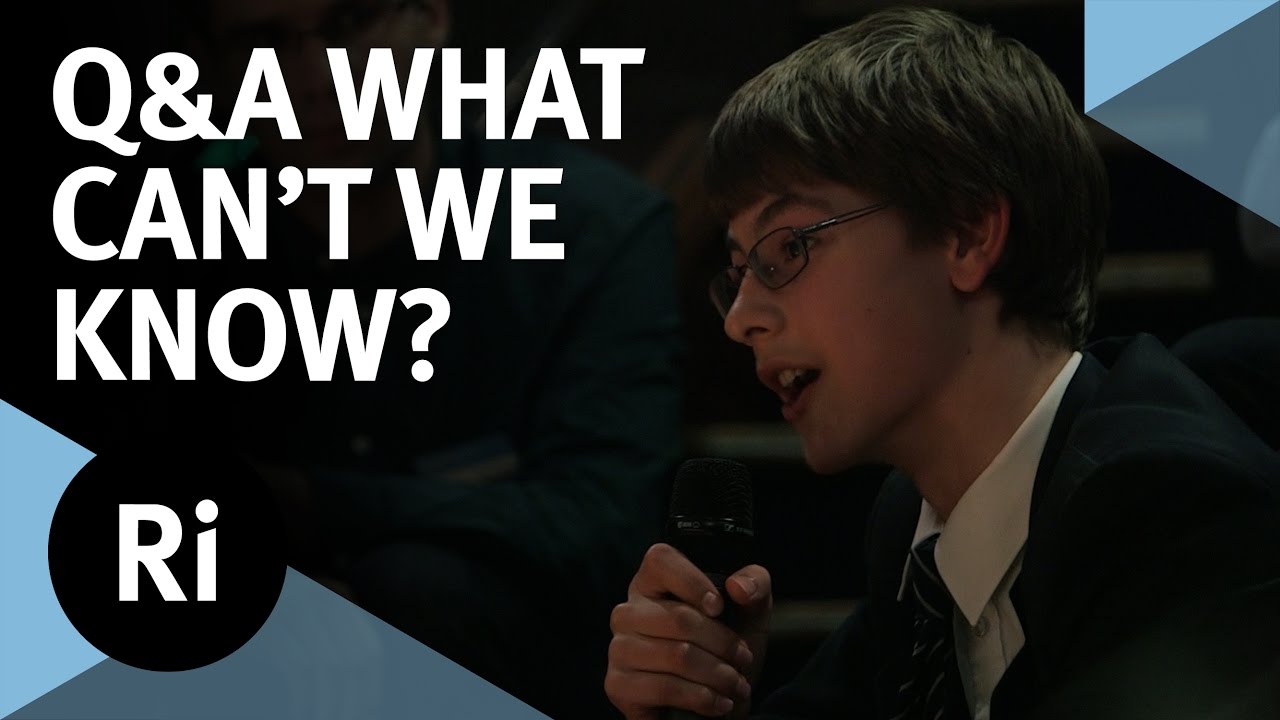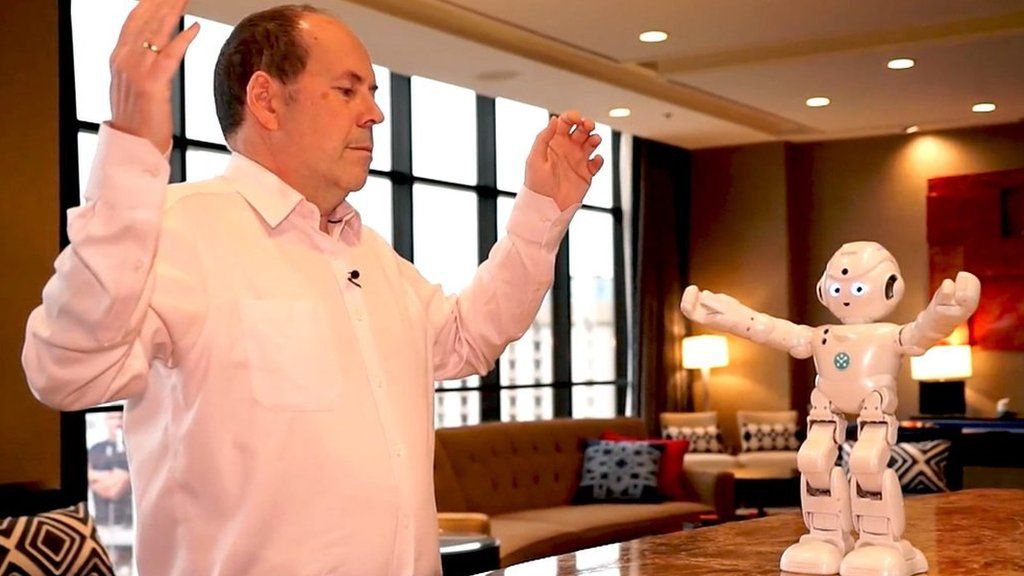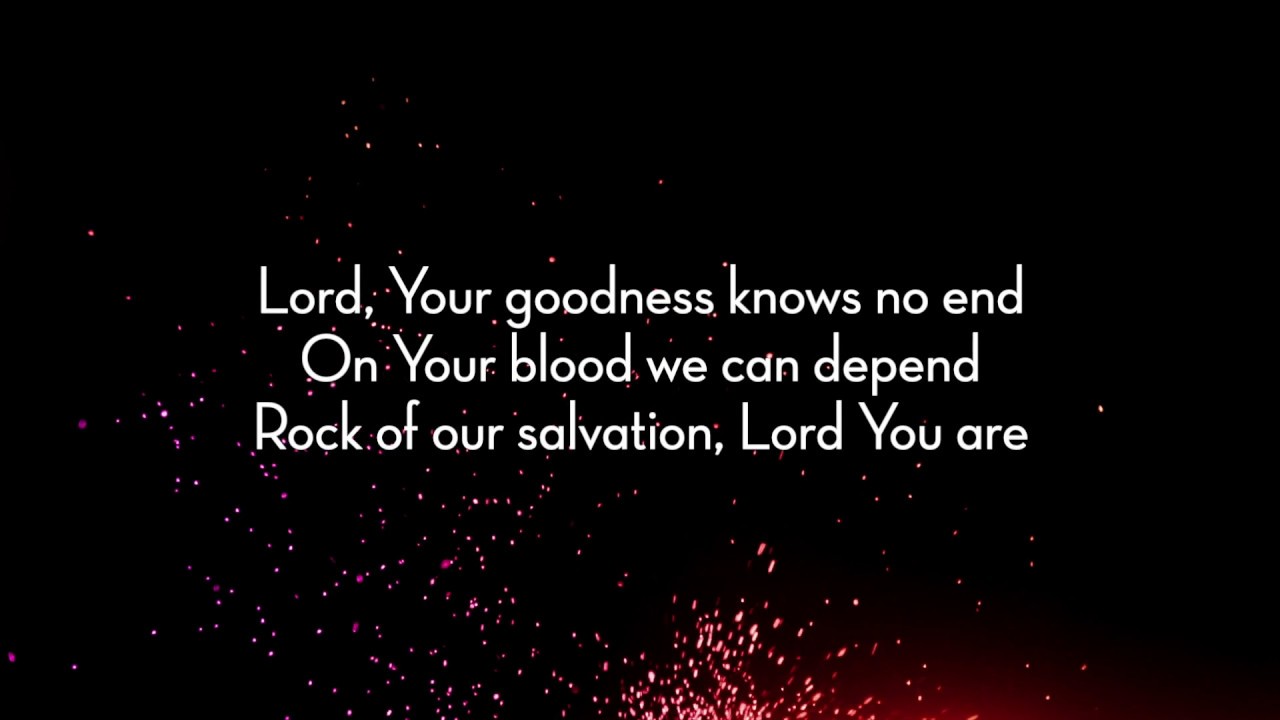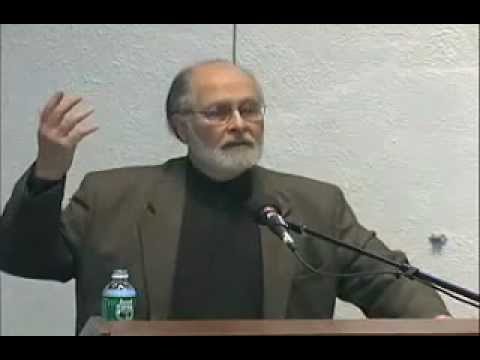The Royal Institution
Is there a distinction between something that doesn’t exist and something we don’t know? Is there a limit to what science can tell use? Marcus du Sautoy answers questions from the audience after his talk.
Watch the talk here: https://www.youtube.com/watch?v=reeU09R4TIA
Subscribe for regular science videos: http://bit.ly/RiSubscRibe
Is it possible that we will one day know everything? Or are there fields of research that will always lie beyond the bounds of human comprehension? Former Christmas Lecturer Marcus du Sautoy will lead us on a thought-provoking expedition to the furthest reaches of modern science.
Marcus du Sautoy is a mathematician and popular science writer and speaker. He delivered the 2006 CHRISTMAS LECTURES on mathematics, titled THE NUM8ER MY5TERIES. He is currently the Charles Simonyi Professor for the Public Understanding of Science at the Oxford University.
This talk and Q&A was filmed at the Ri on 13 October 2016.
The Ri is on Twitter: http://twitter.com/ri_science
and Facebook: http://www.facebook.com/royalinstitution
and Tumblr: http://ri-science.tumblr.com/
Our editorial policy: http://www.rigb.org/home/editorial-policy
Subscribe for the latest science videos: http://bit.ly/RiNewsletter
Source




@6:37 This is the question I waited to hear him address. He kind of side skirted the question and talked about senses…but the questioner mentioned his dog, which has the same 5 senses we do…but it will never comprehend quantum mechanics. Either way this is a great talk. Thanks for uploading them !
I much prefer Richard Dawkins to this guy. Dawkins spoke in clear sentences and perfect scientific method.
I am not at all surprised that scientists approached by a person who has memories of "heaven" do not want to tackle the issue. To tell someone to their face that they have had a vivid hallucination which is inherently meaningless when that person views it as very significant is a very unkind thing to do. And in the end, you know that person has already considered the possibility themselves and discarded it for naked emotional "reasons" and nothing else. They have abandoned reason, and no amount of reason can convince such a person to trust reason over their gut instinct.
It's a Catch-22 situation. If you reject reason, not even a mountain of reasons why it would be better if you accepted it can possibly work. You have replaced reason with the 'default mode' of human understanding where you rely upon emotional trained (mostly unconsciously and unintentionally trained but trained nonetheless) responses and made the only means of convincing you to be emotional manipulation. To anyone who values reason as a means of understanding the world, to emotionally manipulate someone into a believe is a disgusting, abusive, repugnant thing to do to someone. Even if you COULD find someone who in a weak moment uses some tactic of emotional manipulation to convince you to accept reason – you would immediately realize that they were being a flaming hypocrite and reject reason once again!
Dude its like…everything is…I mean it's waves bro
God is good, God is fair. To some He gave brains, yet others He gave hair.
We should unexpect the expected then we will never be surprised 🙂
Superb presentation. Will have to buy your book.
I thought some Corvids (ravens crows and magpies) as well as some cetaceans (I think just dolphins) also passed the mirror test?
There's no mystery about the effectiveness of mathematics.
Actually it's quite simple: you can design mathematical models in a way they fit to your object. It's an invention game.
Then you can get surprised how well mathematics fit to your object and say your object is mathematical in some essential way, and get all platonic. But that's an a-posteriory reaction to what you had to do first.
And when the model doesn't fit something about the object… then blame the model as incomplete.
The problem with platonism is you have to assume there's a model that reflects all properties of the whole system, which contradicts a few things.
Idealism is circular reasoning.
Professor Michio Kaku has stated quite plainly on multiple occasions that there are quite a few things that are unknowable by humans at our current state. Amongst one of these is the question whether God exists. It is unknowable, indeterminable because it is unfalsifiable. Reading the comments, I see that quite a number of people claimed that science, math, logic, reason all points to the scenario where God doesn't exist, and anyone who claim otherwise is unscientific, and without reason or logic.
One had even challenged his opponent to give scientific evidence that lucid dreaming or OBE's are real phenomena and that they exist. He closed his argument by implying that the inability to give such scientific evidence is equivalent to concluding that it does not exist, and whatever memories they refer to as OBE's or lucid dreaming are merely hallucinatory in nature.
To those of you who are aligned with this camp, it is infalsifiable to argue that OBE's doesn't exist. Those whom you challenge to provide scientific evidence that prove the existence of OBE's could not provide you any more than you can provide similar evidence to disproving its existence. The same goes for the God question.
Madness, intertwined with truth..and truth intertwined with madness,.
the thing about being brain dead and saying you have loads of experiences is: just before and just after you were brain dead, you weren't brain dead, so there was time for your non-dead brain to do all the stuff you later describe
Is he wearing a Terence Mckenna T-Shirt?
I am a little surprised that Marcus du Sautoy did not mention Kant.
Everyone and everything (to the level of fundamental particles and whatever comes in the fundamental hierarchy to the very Nature and nature of Nature) is conscious in their own way.
Why should there be "laws of Nature" ??
Im proud to say that i am the like #420 which happened right after i heard "Maybe mathematics is the god which gave raise to everything here and that we are just a piece physicalized mathematics"
Boring. After the fantastic David Tong, this video was so mundane.
26:45 "maybe mathematics is the God, which gave rise to everything here and we are just a piece of physicalised mathematics"
Dear Royal Institution,I wish you would tell us the dates when these lectures occurred. Just write the dates in the title. Please
Alpha0 can perform a task that we have no idea of how. But is it conscious?
Also what about Alzheimer's patients who lose consciousness.
I wish to point out that DNA does NOT create live. Extract DNA (you may do it from yourself) give it proper mixture of elements (not alive elements!) and leave it be, come back 9 months later and check, if you have new born or just pile of matter.
There is still the problem of abstract mathematics being able to cause something physical to happen.. Abstract mathematics has no causal power..
What a talk! Thank you Sir !
That backdrop always reminds me of Q*Bert.
This talk, is like the Rohirrim's King speach before the great battle!
"We must think there is nothing we can' t know"… is like when he scream "Death! Death!".
Scientist must scream "Frustation! Frustation!" because is the way to the victory, to the knowledge.
Thanks for your talking. So epic…
Wonderful talk and wonderful speaker. It is a real pleasure to attend to these talks, even if through the Internet.
Professor Quirrell was very cheerful indeed until he got possessed by Voldemort
Adaptive neural networks are going to push us a long way towards understanding consciousness, but to get to self-awareness and AGI, we are going to have to figure out how pain is created in the mind imo, because pain i think likely helps towards becoming self-aware, its like were automatons then we hurt say our hand and that pain makes use inspect our hand and then every time we try to use that hand the pain sensation comes back and that triggers a realization, when i do this, i get this sensation, if this then that, oh that is my hand, wait a minute what am i? i could be talking nonsense but that is what i think so far. Similar to what Sautoy says in the animal behavior experiment with putting a marking on the animal and see if it recognizes itself as having that mark on themselves in the mirror.
So far i think consciousness is a combination of things, so perceptual data processed by the brain, the chatter between different parts of the brain, built up predictive circuits in the brain from observing the world and so then overlayed on our perception are these predictions/modeling/expectations of the world and then the most mysterious part, is how that then interacts with the brain stem to consciously operate the body, perhaps reversing the signals coming from our nerve impulses, because i saw a woman who damaged the connections between her brain and the brain stem by consuming vast amounts of salt in soy sauce, she was still conscious but no longer able to move her body consciously.
Clearly the body can operate without consciousness, look at insects for example or robots, there is this wasp that injects its eggs into spiders/cockroaches etc as well as paralyzing the spider, when it goes to bury the spider in a hole to incubate its young, it digs a hole, but meanwhile the scientist moves the spider from where the wasp left it, the wasp comes back, notices the spiders position has changed, so then it drags the spider near the hole again, then goes back to inspect the hole, to see if its clear, meanwhile again the scientist moves the spider, the wasp comes back and repeats the pattern, so this leads me to believe wasps have inbuilt simple rule sets to follow, like ants and probably all lower life forms.
See this kurzgesagt video on emergence https://youtu.be/16W7c0mb-rE , their bodies appear to operate with no conscious thoughts. I kind of feel even myself acted like an automaton until about the age of 16-20, driven entirely by subconscious motivations such as, the bacteria colonies in our guts send signals to the brain telling us to seek out food and what specific foods to eat(because each specific bacteria colony feeds on certain molecules), also before puberty had no interest in sex or understanding of what it really was, then once the sexual organs develop and produce hormones suddenly we become interested in sex and seeking it out, one of our biggest subconscious motivators, but then as i say somewhere between 16-20 years old i started getting existential crisis pondering what am i, i am alive, what is this reality etc i would say the subconscious is autonomous but somehow consciousness is able to turn on/activate specific autonomous circuits, like motor functions, movement. Would be nice if someone could add to what i have said or poke holes in my ideas, would be appreciated.
Anyways a fascinating Q&A, thanks for the video.
He is always incredible in his viewpoints and examples as to astound me!